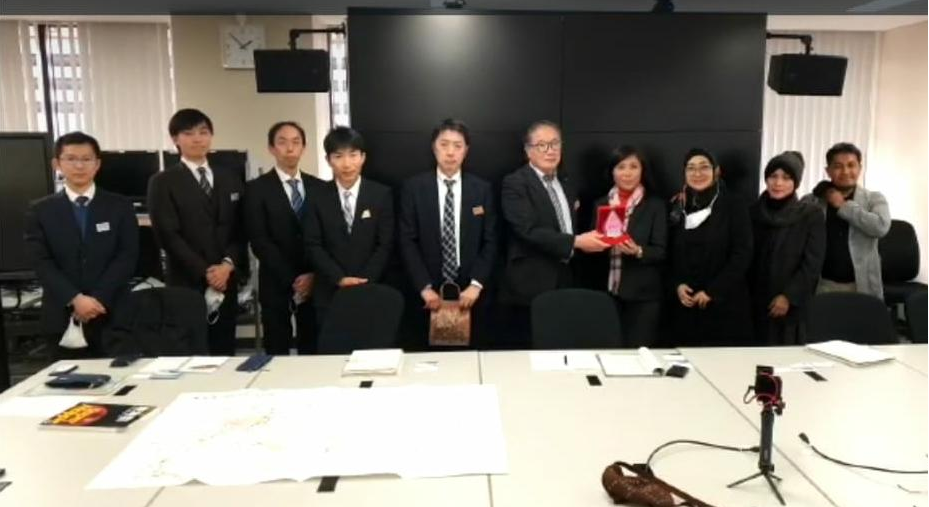A joint research team which consists of academics from the Faculty of Tourism and Faculty of Engineering at Universitas Pancasila, Jakarta, and a researcher from the Research Center for Geospatial, National Research and Innovation Agency (BRIN) undertook a comparative field study abroad to Japan on the 6th to 14th of January 2023 as part of their research titled “Toward a Framework for Public-Private Partnerships in Disaster Management Planning for the Tourism Sector”. The research team consists of the following members:
Devi Roza K. Kausar, Ph.D., CHE (Dean of the Faculty of Tourism; Team Leader)
Dr. Ir. Sarojini Imran., M.Si (Head of Tourism Study and Development Center, Faculty of Tourism; Team Member)
Dr. Dini Rosmalia, S.T., M.Si., IAI., IALI (Head of Architecture Department, Faculty of Engineering; Team Member)
Dr. Agustan, ST, MSc., IPU(Research Center for Geospatial, BRIN; Research Collaborator)
he research, funded by a research grant from the Ministry of Education, Culture, Research and Technology – Indonesia, has been carried out for two consecutive years on cooperation between the government and the private sector in disaster management planning in the field of tourism. This study examines the role of tourism industry associations in disaster mitigation that can affect the resilience of the industry and communities affected by disasters; identify the factors that influence the success of public-private partnerships in disaster management planning particularly between government agencies and tourism industry associations; and determine the priority for the realization of this partnership or collaboration. Studies were carried out in Yogyakarta and Bali, and a comparative analysis was carried out with the tourism industry in Japan.
The followings are the team’s agenda while doing comparative field study in Japan:
- Conducted interviews and discussions with representatives of hotel association (Mr. Makoto Funahashi), travel industry association in Nagoya – Aichi Prefecture (Mr. Mitsuru Ishikura) and a cable car operator (Mr. Hiroyuki Ban) operating in Gifu Prefecture regarding the readiness of the private sector to anticipate disasters.
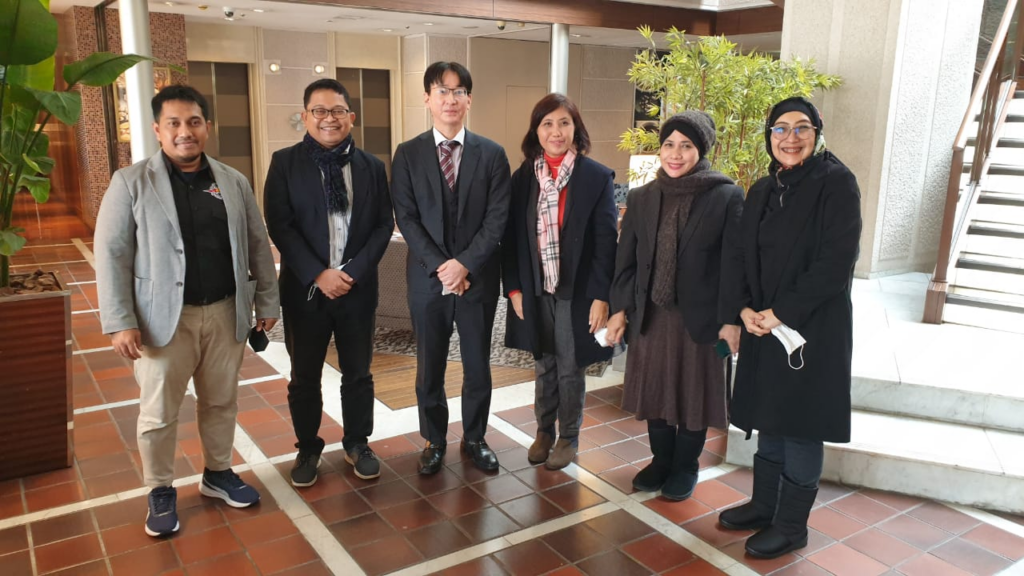
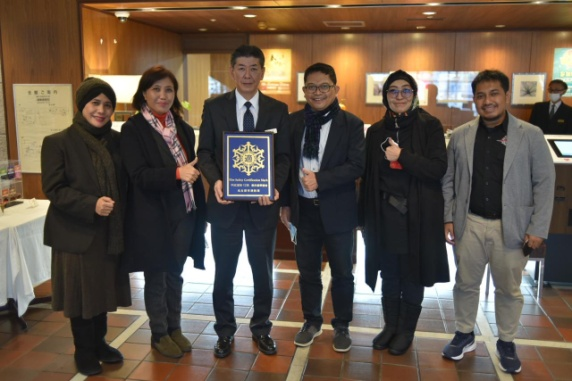
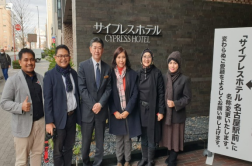
2. Visited Aichi Prefecture Disaster Prevention Headquarter and conducted interviews with the representatives of the Headquarters (Mr. Kawashima Hirokazu and team). The management of Aichi Prefecture Disaster Prevention Headquarter warmly welcomed Indonesian researchers and greatly appreciated the research conducted by the team.
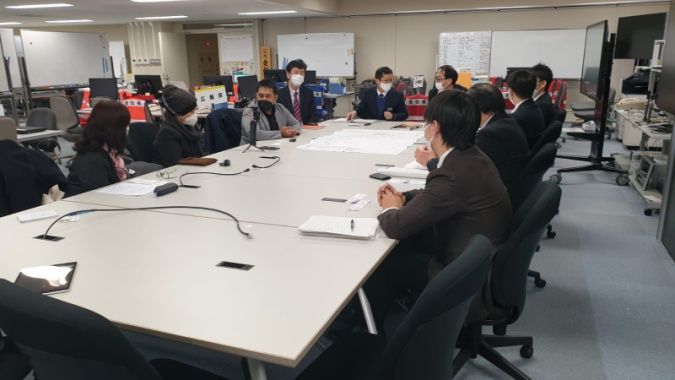
3. Visited Nagoya University Disaster Mitigation Research Center to discuss preliminary research findings with Prof. Takeshi Sagiya and Assoc.Prof. Takeo Ito. The team also met with Prof. Yoshiaki Nishikawa of Ryukoku University, an expert in international development who hosted dinner in a pleasant and warm atmosphere in a lovely Japanese restaurant.
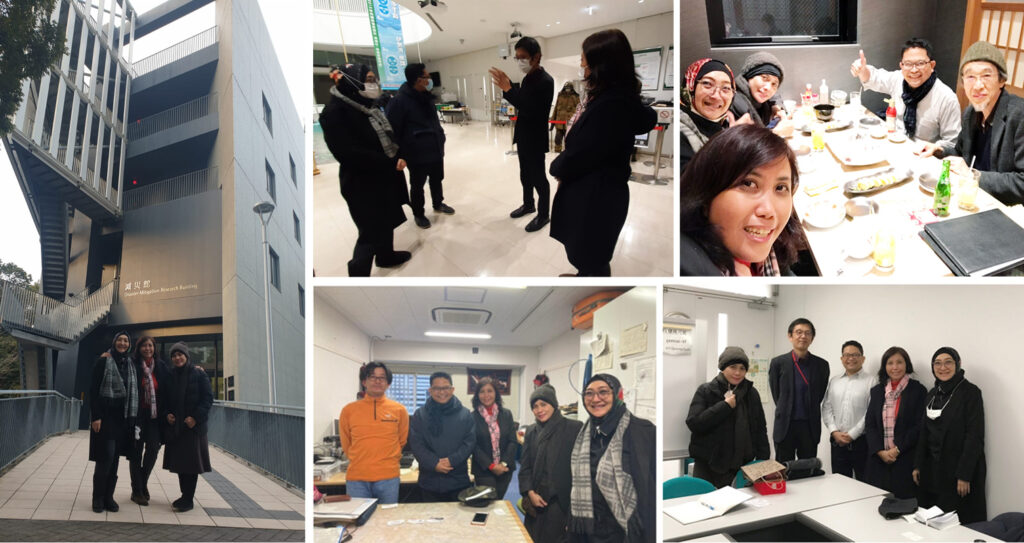
4. Visited and observed Mount Ontake Visitor Center at Kiso-Fukushima, Gifu Prefecture, and conducted interviews to find out how visitor center developed disaster experiences into an educational tourist attraction. Mount Ontake, on the borders of Gifu and Nagano prefectures, is Japan’s second-highest volcano after Mt. Fuji at 3,067 meters and Japan’s 14th-highest mountain. Ontake last erupted without warning on 27 September 2014, killing dozens of hikers.
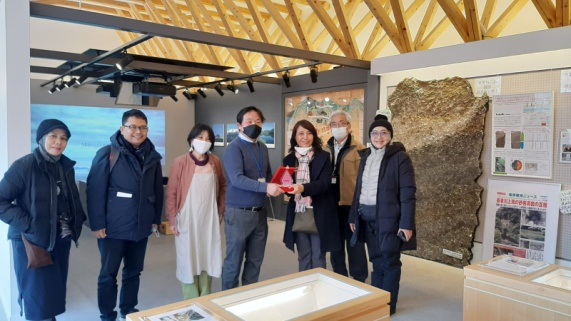
5. The agenda was visiting Tohoku University International Research Institute on Disaster Science (IRIDeS) located in Sendai, Miyagi Prefecture in the Tohoku Region, Japan, to discuss with experts of the leading disaster science research institution. The team was warmly welcomed by Professor Fumihiko Imamura, Director of IRIDeS and Assoc.Prof. David N. Nguyen.5. The agenda was visiting Tohoku University International Research Institute on Disaster Science (IRIDeS) located in Sendai, Miyagi Prefecture in the Tohoku Region, Japan, to discuss with experts of the leading disaster science research institution. The team was warmly welcomed by Professor Fumihiko Imamura, Director of IRIDeS and Assoc.Prof. David N. Nguyen.
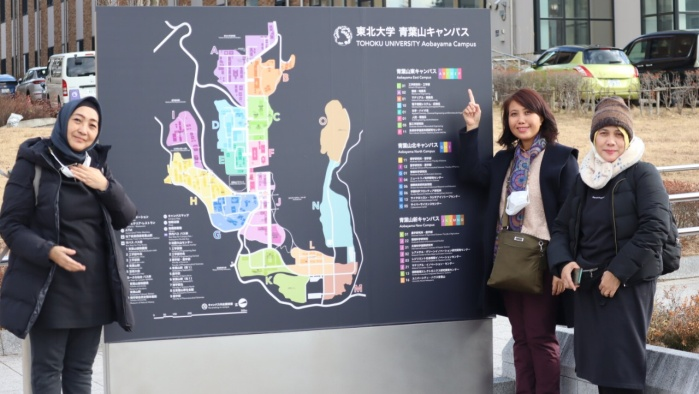
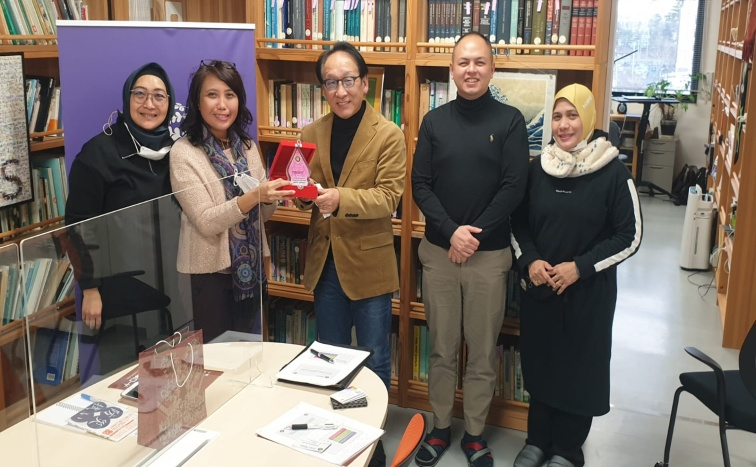
his comparative study visit to Japan provided a lot of insights and lessons learnt for improving disaster risk reduction and encouraging public and private partnerships in disaster-prone tourists destinations.


